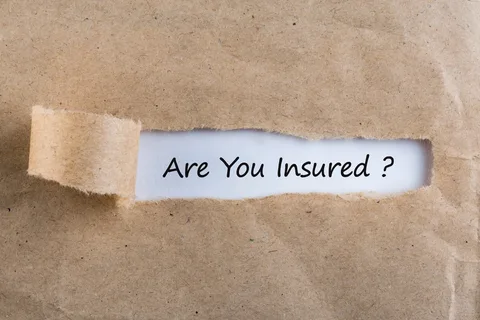What Your Insurance Doesn’t Cover
When you purchase an insurance policy, whether it’s for your home, car, health, or life, you likely feel a sense of relief. You assume that you’ve taken the necessary steps to protect yourself, your loved ones, and your assets from the unexpected (What Your Insurance Doesn’t Cover). But what if your confidence is misplaced? What if there are crucial gaps in your insurance coverage that could leave you vulnerable when you need protection the most?
It’s an unsettling thought, but the truth is that many people don’t fully understand what their insurance policies do and do not cover. Insurance policies can be filled with fine print, exclusions, and limitations that might come as a nasty surprise when you attempt to file a claim. In this article, we’ll uncover some of the most common and unexpected exclusions in insurance policies, helping you avoid the shock of discovering that you’re not as protected as you thought.
1. Homeowners Insurance: Flood and Earthquake Damage
One of the most common misconceptions about homeowners insurance is that it covers all forms of natural disasters. While your policy likely covers damage from events like fire, lightning, and windstorms, it often excludes damage caused by floods and earthquakes. These types of disasters are considered “high-risk” and typically require separate insurance policies.
Flood Insurance: Many homeowners assume their standard policy covers flood damage, but most do not. If you live in a flood-prone area, you’ll need to purchase a separate flood insurance policy through the National Flood Insurance Program (NFIP) or a private insurer. Without it, you could be on the hook for thousands of dollars in repair costs.
Earthquake Insurance: Similarly, earthquake damage is not covered under standard homeowners insurance policies. If you live in an area prone to seismic activity, like California, you should seriously consider purchasing additional earthquake insurance. The costs of repairs after an earthquake can be astronomical, and without proper coverage, you’ll have to pay out of pocket.
2. Auto Insurance: Rental Car Coverage
Many drivers assume that their auto insurance policy will automatically cover them if they need a rental car after an accident. However, this is not always the case. Rental car coverage is often an optional add-on to your existing policy, and without it, you may be left without a vehicle while yours is being repaired.
Even if you do have rental car coverage, it’s important to know the limits of that coverage. Some policies only cover a rental car for a limited number of days or up to a certain dollar amount per day. If your car is in the shop for an extended period or if rental prices are high, you could end up paying out of pocket for the difference.
3. Health Insurance: Experimental Treatments and Procedures
Health insurance policies are notoriously complex, and one area where many people find themselves unexpectedly uncovered is with experimental or investigational treatments. These are medical treatments, procedures, or medications that are not yet widely accepted as standard care by the medical community or approved by regulatory agencies like the FDA.
If you or a loved one needs an experimental treatment, whether for a rare condition or as part of a clinical trial, your health insurance may not cover it. This can leave you facing steep medical bills at a time when you’re already dealing with the stress of a serious health issue. Always check with your insurance provider before proceeding with any non-standard treatments.
4. Life Insurance: Certain Causes of Death
Life insurance is supposed to provide financial security for your loved ones after you pass away, but there are certain circumstances under which your policy may not pay out. Most life insurance policies have exclusions for specific causes of death, such as suicide within the first two years of the policy being in effect.
Other exclusions might include death as a result of engaging in high-risk activities, like skydiving or scuba diving, or death that occurs while committing a crime. It’s crucial to read the fine print of your life insurance policy and understand any exclusions or conditions that could affect your coverage.
5. Travel Insurance: Pandemics and Epidemics
The COVID-19 pandemic exposed a significant gap in many travel insurance policies: coverage for pandemics and epidemics. While travel insurance is designed to protect you from unexpected events like trip cancellations, medical emergencies, or lost luggage, many policies specifically exclude coverage for events related to pandemics.
If you’re planning a trip, it’s important to review your travel insurance policy carefully. Look for policies that offer “cancel for any reason” coverage, which can provide a broader range of protection, or check for specific clauses that address pandemics or other large-scale health emergencies.
6. Umbrella Insurance: Business Activities
Umbrella insurance is often marketed as an additional layer of protection that kicks in when your other policies reach their limits. However, one area where umbrella insurance may not provide coverage is for business activities conducted from your home.
If you run a home-based business, even something as simple as freelancing or selling crafts online, your umbrella insurance may not cover any liability associated with those activities. In this case, you might need a separate business insurance policy to protect your assets and income.
How to Protect Yourself from Unexpected Insurance Gaps
The good news is that you can take steps to protect yourself from the gaps in your insurance coverage. Here are some tips:
- Read Your Policy Carefully: Take the time to read and understand the details of your insurance policies. Look for exclusions, limitations, and conditions that could affect your coverage.
- Ask Questions: If you’re unsure about any aspect of your policy, don’t hesitate to ask your insurance agent or provider for clarification. It’s better to ask questions now than to be surprised later.
- Consider Additional Coverage: Depending on your needs, you may want to purchase additional coverage for specific risks, like flood or earthquake insurance, rental car coverage, or a rider for high-value items.
- Review Your Policies Regularly: Life changes, and so do your insurance needs. Review your policies regularly to ensure that they still provide the coverage you need.
- Stay Informed: Keep up with any changes to insurance laws or regulations that could impact your coverage. Staying informed can help you make better decisions about your insurance needs.
Conclusion
Insurance is supposed to offer peace of mind, but that peace can be shattered if you discover that you’re not as covered as you thought. By understanding the common exclusions in your policies and taking proactive steps to fill in the gaps, you can ensure that you’re fully protected when life throws the unexpected your way. Don’t wait until it’s too late – review your insurance coverage today and make sure you’re truly safeguarded against the risks that matter most.



